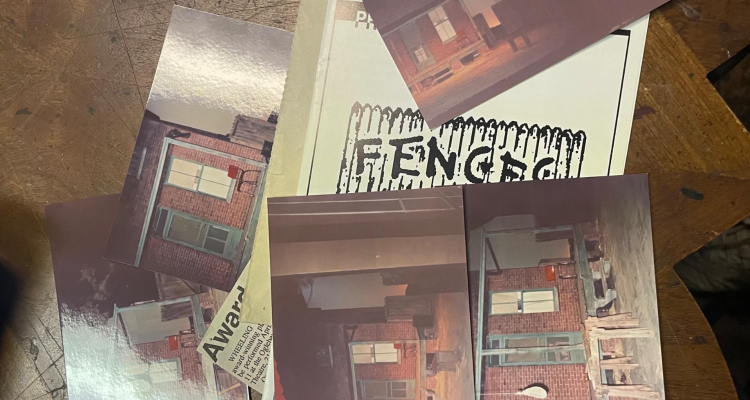“Don’t you try and go through life worrying about if somebody like you or not. You best be making sure they doing right by you.” Fences. August Wilson’s Tony and Pulitzer Prize-winning play from 1985. A part of his landmark work, The Pittsburgh Cycle, is a series of 10 plays, 9 of which are set in the Hill District of Pittsburgh. This historically Black neighborhood is the main throughline in the work, which spans the breadth of the 20th century. The collected work aims to center the Black experience through the years, in the neighborhood where Wilson grew up. The first of the plays is set in 1904, and the last in 1997. Fences lands right in the middle, depicting the post-war Pittsburgh of 1957.
Fences is all at once a sometimes too-close intimate look at one family, and a heavy drama pinned in place by the stress of the community at large. It is a story that centers on Troy, a former baseball player in the Negro Leagues, who aged out of the game just as the Major Leagues became desegregated. His wife, Rose, is the heart of the play. When confronted with challenges, her compassion steers the play home. Troy’s brother, Gabriel, is a man who suffered a serious brain injury during the war that leaves him in a state of half-reality. He sees himself, sometimes, as the angel Gabriel, with a trumpet ready to open the gates, come Judgement Day. In spite of his state, he seems to be the only character who can clearly see the fate lying before Troy. Troy’s friend, Bono, is another key player, who brings a certain honesty to the show. That leaves Troy’s two children, Cory and Lyons. In Cory, a promising football player, Troy sees everything he could have been and can never have. Lyons, the older of the two, is an aspiring jazz musician, much to the chagrin of his father.
In 1992, Towngate brought Fences to Wheeling. As a theater operating in such proximity to Pittsburgh, this show felt close to home. Towngate brought in two talented equity actors from Pittsburgh, Donald Marshall, and Monica Farrell, to portray Troy and Rose. The other cast members were all Wheeling locals: Nabulungi Cochran, Gene Cook, Charles “Chuck” Gordon, Ronald Scott, Jr, and Ronald Scott, Sr. “The Ronald Scotts, father and son,” as The Sunday News Register referred to them, played brothers, Cory and Lyons. It was their first time together onstage. Ron remembers what it was like to see his father tackle playing Lyons. “At home, we got to run lines together,” He recalled. “His character is so much like who my father was. He’s kind of draped off on being an artist, he wants to be a musician. He sounds irresponsible, and he just wants to play. My father was an aspiring poet at the time. He was so into his poetry taking off and his ability to do it.”
While Ron enjoyed his time on stage with his father, he was also a little nervous going into his first show on the Towngate stage. “I remember feeling like there’s no way I’m going to measure up to this. There’s these two equity actors and they’re just great. And then there’s my dad, who I just don’t want to disappoint in any way shape or form. And then Gene Cook, who played Gabriel, I remember my dad talking about doing stuff with him and Wade Hamlin, and hearing about him just being excellent. And then the math teacher at Park played Bono. Everyone in the cast is someone I hold in high regard, whether it’s their skill on the stage or people I knew in the community, so it was tough.”
Ron, though, did not not let the fear hold him back, he spoke of the hard work that went into this production. He recalls the cast sticking to hard off-book deadline (a time when you have to be fully memorized, no longer referencing your script) because they knew how good a show they could create without scripts in the way. Donald and Monica also helped to teach Ron about the importance of knowing the script forwards and backwards, so that you could come up with solutions when things went awry, as they often do in live theater. Ron told a story about the third performance of Fences. “Don and I have this scene where we tussle with a baseball bat. I’m backstage before, talking to people. We’d done it twice and I didn’t mess up, so I was starting to feel myself, doing my thing. I’m just waiting for my cue (to go onstage), and I get to talking…and I miss my cue. And Don is just yelling at me to come out, little stuff. But then he turns to face the backstage and just yells ‘CORY!!!’ and I felt it in my stomach, it was like ‘oh my god I’m going to die’. I ran right out and…that was real acting. I wish I could have seen it from the audience, I bet it translated perfectly. I was just scared to death.” Afterward, Donald told Ron, “You gotta bring that every night, what you had with that….just don’t be late.” At another performance, Ron’s new lesson of expecting the unexpected came in handy again. “Not only did I forget to enter that one time, but we’re doing a scene where we wrestle over the bat. I swing, and he dives. Well, I time it wrong. So he dives, I swing, and the top of the bat hits him right in the face.” They made it part of the struggle, played it off like it was meant that way. Ron emphasizes how moments like these are the joys of live theater.
Ron, and Tim Thompson, who was the technical director for the production, both had one scene that stuck with them. “The scene where Troy brings the baby and gives it to Rose,” Tim remembered. “Rose just killed it. Now she kills the whole monologue, but that ending line ‘this child’s got a mother, but you a womanless man’,” Ron said of the same scene. They both spoke of Monica’s rendition of that scene with such reverence. All those years later, it seems to still give them both chills.
One other part of this production still sits heavy with Ron and Tim. The free performance. “Hal noticed we weren’t getting the crowds we should have got for this play, so he opened it up,” said Tim. On one of the final nights, Hal made the decision to simply make the show free. Ron remembers how much of an impact that perforce had. “He said, ‘Call everybody you know, get anybody on the horn, and tell them to come down tonight. It’s on me; just come down, experience it.’ I don’t know if he ever understood the good faith that that bought. A lot of people, they get turned off initially just from the price, and they always think it’s going to be some boring stuff. So, for free, they got to come down and experience this play.” Ron said that people who had never engaged with theater before became fans that night.
August Wilson is such a powerful force in theater; it’s no wonder his story made fans. Tim said that putting on one of his shows was necessary to Hal, “he didn’t want to just do all the ‘classical’ plays by white playwrights.” The importance of centering a modern playwright telling a Black story cannot be understated. Ron praises Wilson, citing him as one of his all-time favorite playwrights. “August Wilson surpasses Shakespeare as the greatest playwright, to me. And a lot of people take offense with that; it’s usually White folks that are telling me, ‘Come on now, it’s Shakespeare’. But, to me, the language barrier that exists with folks trying to do Shakespeare, like me, an average cat trying to do Shakespeare, that’s the same kind of barrier folks have to get past with the idea of August Wilson’s shows being intentionally Black. These are Black shows. But they show that the Black experience isn’t that different from anybody’s experience in America. So, if you can suspend whatever you have about watching a Black play or dealing with a play about the Black experience, how some characters might have dialogue about White folks and White America. It’s the same thing we have to suspend when doing Shakespeare.”
August Wilson’s legacy is vast, and has not dimmed with time. Most recently, Fences was turned into a movie in 2016, starring and directed by Denzel Washington. Viola Davis was awarded an Academy Award for her turn as Rose, delivering the powerful line, “This child’s got a mother, but you a womanless man.” It is still one of the most memorable scenes in the show. Denzel made a point about filming in Pittsburgh’s Hill District. The play Wilson wrote had returned home. The performance at Towngate is one piece of the history of this great story.
References
“August Wilson.” Encyclopædia Britannica, Encyclopædia Britannica, https://www.britannica.com/biography/August-Wilson. Accessed 29 Feb. 2024.
“Award-Winning Play at Towngate.” Sunday News Register, 1992.
Ervin-Eickhoff, Brent. “August Wilson’s Century Cycle – Court Theatre.” Court Theatre, https://www.facebook.com/CourtTheatre/, 21 Aug. 2020, https://www.courttheatre.org/about/blog/august-wilsons-century-cycle/.
Wilson, August. Fences. 1986.








